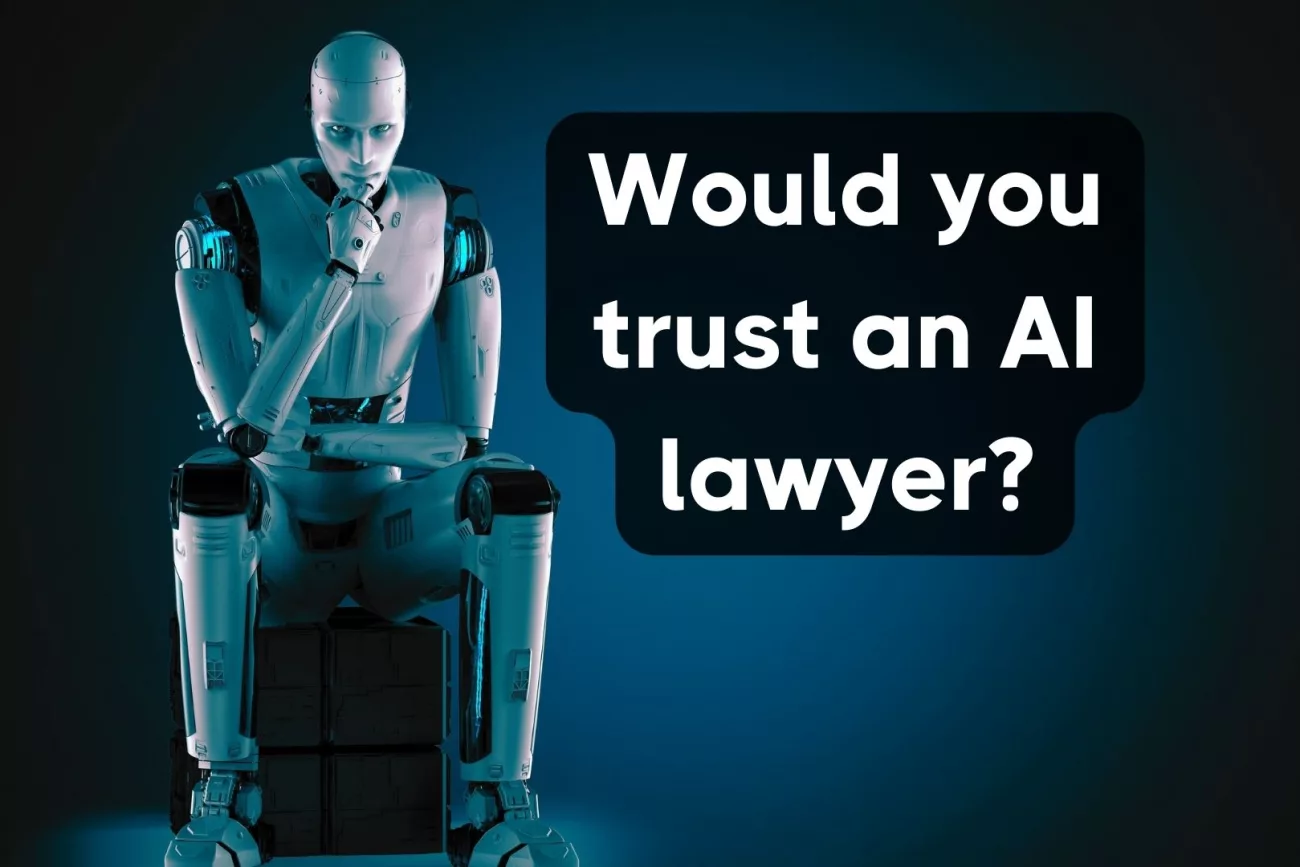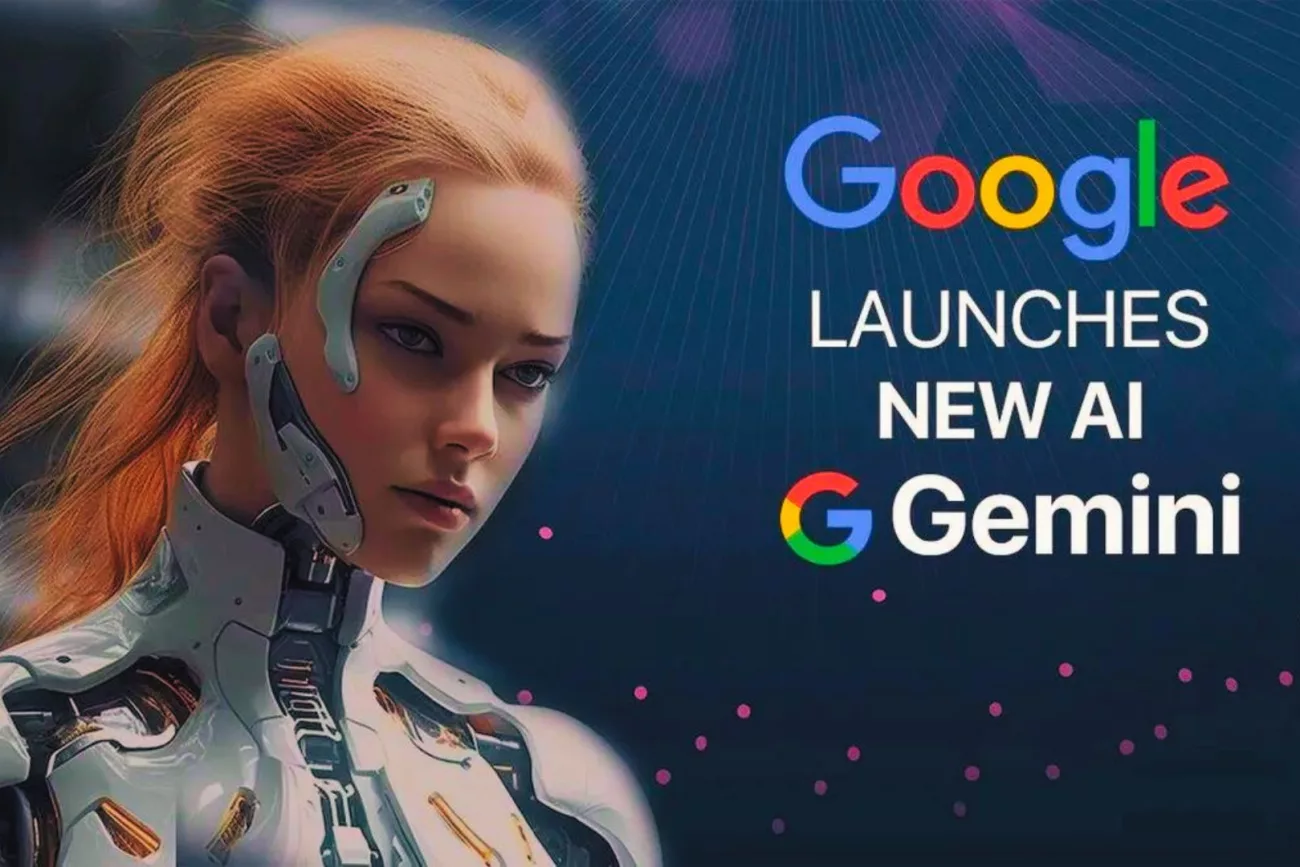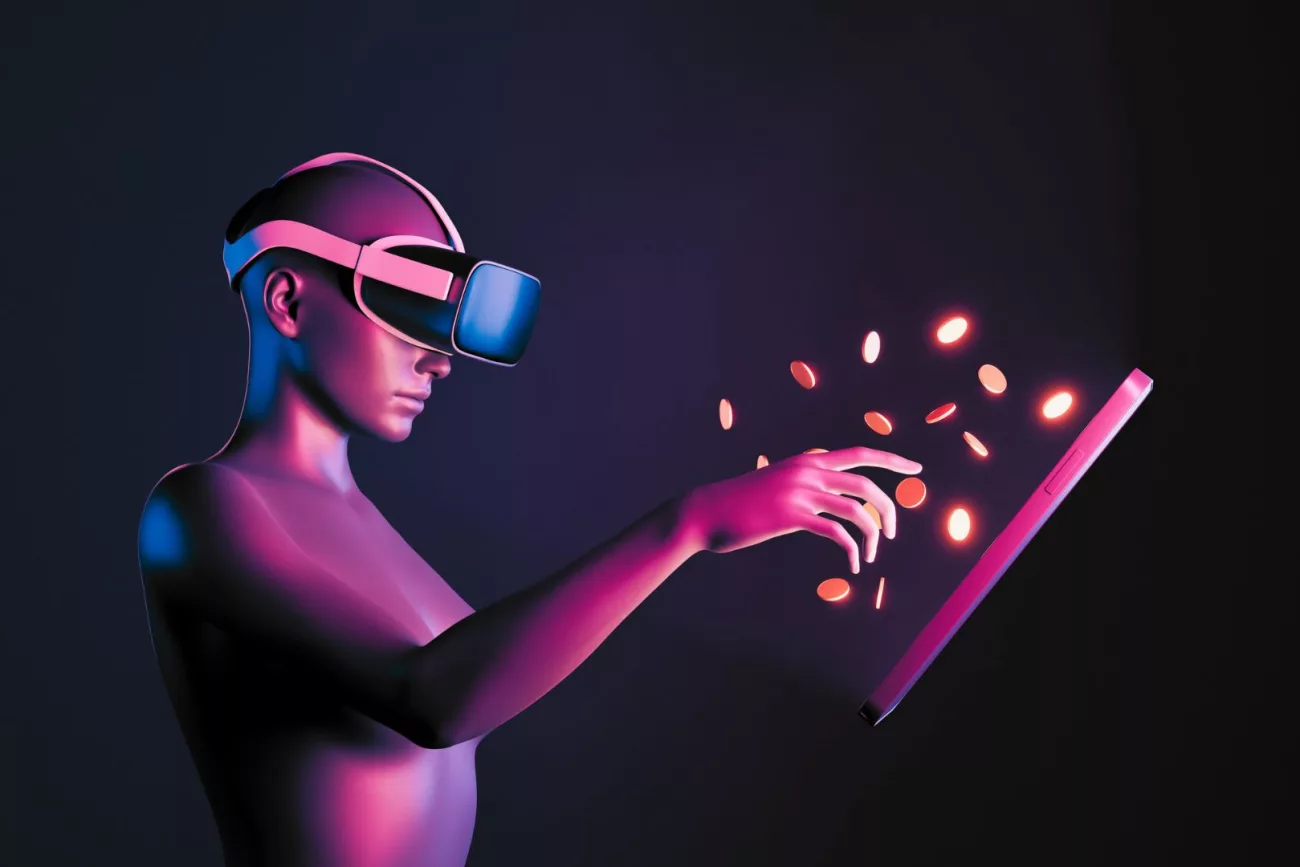
Key Points:
- Probes the contentious crossroads of AI and law, weighing the benefits of AI’s efficiency against the potential loss of human subtlety in legal tasks.
- Explores the possibility of an AI-dominated legal system in the future, sparking debate about the diminishing role of human lawyers.
- Sheds light on ethical dilemmas, referencing instances of AI bias, and questions the capacity of AI to deliver unbiased justice.
- Wraps up by rallying readers to participate in the #AILawDebate, urging them to express their views on this hotly debated topic.
Introduction: The Collision of AI and Legal Interpretation 👨⚖️💻
The Rise of AI in Every Nook and Cranny of Society 🚀
Once a far-off sci-fi dream, Artificial Intelligence (AI) is now permeating every industry, from transportation🚗 to healthcare💉, and even entertainment🎥. This technological titan has shown an incredible ability to revolutionize how we operate, boosting efficiency and unlocking new opportunities. For instance, an AI model developed at the University of Chicago can now predict the location and rate of crime across a city a week in advance with up to 90% accuracy.1 Remarkable? Yes. Controversial? Undeniably so.
AI Infiltrates the Legal Sphere: Innovation or Insanity?⚖️🤖
However, when AI treads into the realm of the legal profession, we’re prompted to ask: are we unleashing Pandora’s box? The traditional image of law has been one of human jurisprudence, built upon centuries of human thought, principles, and precedent. Today, AI tools are being leveraged to analyze legal documents, predict judicial decisions, and even automate some basic legal services. This seismic shift has left many dumbfounded, questioning whether we’re on the brink of legal innovation or the precipice of ethical insanity.
The Controversy: Unbiased Justice or Mechanized Discrimination?👨⚖️🤷♂️
AI’s venture into law enforcement has been met with a firestorm of controversy. In Chicago, an AI tool used to predict crime rates ended up listing 56% of Black men aged between 20 to 29 as being at risk of involvement in a shooting. This sparked outrage, with critics arguing it perpetuated racism1. Although the creators claim measures have been taken to reduce bias and that the tool only identifies potential crime locations, not suspects1.
The Bigger Picture: A Tool for Policy or Prejudice?🌍🔍
The tool’s developers suggest that it could be used to inform high-level policy, rather than directly allocate police resources. Yet, critics argue that this still may contribute to systemic bias in the long run, with wealthier areas seeing more arrests for the same crimes than poorer areas1. Does AI offer an unbiased lens to guide policy, or is it just another cog in the wheel of discrimination?
What’s Your Take?💡
Are we entering a new era of efficient, data-driven legal processes, or are we risking our ethical principles on untested AI ground? Is AI a tool for justice or a machine of bias? Join the conversation using the hashtags #AILawCollision and #JusticeOrBias.
A Call to Action: The Time to Decide is Now 📢🎯
The intersection of AI and legal interpretation is not a far-off scenario—it’s happening now. And it’s time for us to decide where we stand. Do we embrace the potential efficiency and precision AI can bring to our legal systems? Or do we fear the possible ethical implications and biases it could perpetuate? Share your thoughts, engage in the conversation, and let’s shape the future of AI in law together.
This controversial topic is sure to stimulate debate, but it’s essential that we don’t shy away. After all, controversy is the first step towards progress. So, let’s dive in, challenge assumptions, and make our voices heard.
The Advent of AI in Law: Efficiency or a Loss of Nuance? 🧐🤖
The Current Landscape of AI in Law
Artificial Intelligence (AI) has been making waves in various sectors, and the legal industry is no exception. From streamlining client intake with AI-driven tools to expediting contract workflows, AI is revolutionizing the way law firms operate. But is this a step forward or a step back? Let’s dive in.
The Efficiency of AI in Legal Tasks
One of the most significant benefits of AI in law is its ability to improve efficiency. Consider one of the most time-consuming tasks in litigation: extracting structure, meaning, and salient information from an enormous set of documents. AI has proven to be a game-changer in this area, as highlighted by a Brookings report.
The Controversial Trade-off: Efficiency vs. Nuance
However, this efficiency comes with a controversial caveat. While AI can undoubtedly handle large volumes of data and make data-driven decisions, it lacks the human touch. The nuances of legal interpretation, the understanding of context, and the ability to empathize are inherently human traits that AI, as of now, cannot replicate.
The Big Question: Efficiency or Nuance? 🤔
So, we’re left with a critical question: In the realm of law, is efficiency more important than nuance? Is the speed and accuracy of AI worth the potential loss of human touch and interpretive nuance?
This is not a question with a clear-cut answer. It’s a topic that warrants discussion, debate, and contemplation. And that’s where you come in.
Your Thoughts Matter 💭
We invite you to share your thoughts on this controversial topic. Do you believe that the advent of AI in law is a boon or a bane? Do you think efficiency should be prioritized over nuance, or should it be the other way around?
Join the conversation on LinkedIn using the hashtags #AILawDebate and #EfficiencyVsNuance. Let’s stir up some controversy and get the discourse flowing! 🚀🔥
Remember, every perspective matters, and your voice can make a difference. Let’s explore this brave new world of AI in law together.
Future Projections: A World Without Lawyers? 👀⌛
AI’s Future in Law: Expert Predictions
As we look towards the future, the role of AI in law is predicted to expand significantly. According to a New York Times report, new AI technology will not only make lawyers and paralegals more productive but also eliminate some jobs, creating new roles in the process.
The Rise of AI: A Legal System Run Entirely by AI?
Now, here’s where things get controversial. With AI’s increasing capabilities, could we be looking at a future where our legal system is run entirely by AI? Imagine a world where AI can quickly produce initial drafts, cite relevant case law, advance arguments, and even anticipate arguments advanced by opposing counsel, as suggested by a Brookings report.
The Elimination of the Human Lawyer: A Possibility? 😱
This leads us to a radical and contentious proposition: the elimination of the human lawyer. As AI continues to evolve, it’s not entirely far-fetched to envision a world where AI handles all legal matters, from drafting contracts to representing clients in court.
The Big Question: Would You Trust an AI Lawyer? 🤖⚖️
This brings us to a provocative question: Would you trust an AI lawyer with your legal problems? Would you be comfortable knowing that an algorithm, not a human, is handling your legal affairs?
Your Thoughts Matter 💭
We invite you to share your thoughts on this controversial topic. Would you trust an AI lawyer? Do you believe that a legal system run entirely by AI is a future you want to see?
Join the conversation on LinkedIn using the hashtags #AILawyerDebate and #FutureOfLaw. Let’s stir up some controversy and get the discourse flowing! 🚀🔥
Remember, every perspective matters, and your voice can make a difference. Let’s explore this brave new world of AI in law together.
The Ethical Quagmire: Can AI Grasp Justice? 🤷♂️👩⚖️
The Ethical Implications of AI in Law
As AI continues to permeate the legal sector, it brings with it a host of ethical implications. The question arises: Can AI truly grasp the concept of justice? Can it make unbiased decisions that uphold the principles of fairness and equity?
AI Bias in Law: Controversial Cases
The controversy surrounding AI in law is not unfounded. There have been instances where AI has been found to be biased. For instance, a 2018 trial conducted by the London Metropolitan Police used facial recognition to identify 104 previously unknown people suspected of committing crimes. Shockingly, only 2 of the 104 identifications were accurate.
In another case, tech giants Microsoft, GitHub, and OpenAI are being sued in a class-action motion that accuses them of violating copyright law by allowing Copilot, a code-generating AI system, to operate.
The Root of AI Bias: A Reflection of Human Bias?
A report by NIST highlights that AI bias often stems from human biases and systemic, institutional biases. This raises a critical question: If AI is trained on biased data, can it ever be truly unbiased and just?
The Big Question: Can AI Be Truly Unbiased and Just? 🤔
So, we’re left with a provocative question: Can AI be truly unbiased and just? Can we trust an algorithm to make fair and equitable decisions in matters of law?
Your Thoughts Matter 💭
We invite you to share your thoughts on this controversial topic. Do you believe AI can be truly unbiased and just? Can an algorithm ever truly grasp the concept of justice?
Join the conversation on LinkedIn using the hashtags #AIEthicsDebate and #AIJustice. Let’s stir up some controversy and get the discourse flowing! 🚀🔥
Remember, every perspective matters, and your voice can make a difference. Let’s explore this brave new world of AI in law together.
Conclusion: Is AI the Future of Law or a Dangerous Misstep? 🎯💡
A Recap of the AI Controversy in Law
As we’ve journeyed through the landscape of AI in law, we’ve uncovered a world of efficiency, potential, and controversy. From the undeniable benefits of AI in streamlining legal tasks to the ethical quagmire of AI’s ability to grasp justice, we’ve delved into the heart of a heated debate.
The Potential Legal Dystopia: A Controversial Proposition
Now, we arrive at a controversial proposition: Are we on the brink of a legal dystopia? As AI continues to permeate the legal sector, we may be heading towards a future where algorithms replace human lawyers, where justice is meted out by machines, and where the nuances of human judgement are lost in the cold precision of AI.
The Ethical Implications: A Call for Reflection
The ethical implications of this potential future are profound. Can we trust AI to uphold the principles of fairness, equity, and justice? Can we accept a legal system devoid of the human touch? These are questions that demand our attention and reflection.
Your Voice Matters: Join the #AILawDebate 📣
As we conclude this exploration, we invite you to voice your opinions. Do you see AI as the future of law, or do you view it as a dangerous misstep? Do you embrace the efficiency of AI, or do you fear the loss of human nuance?
Join the conversation on LinkedIn using the hashtag #AILawDebate. Share this article and let’s stir up some controversy! 🚀🔥
Remember, your voice can make a difference. Let’s shape the future of law together.
Final Thoughts: Your Turn to Judge ⚖️🗣️
The Verdict is Yours
As we conclude this exploration into the controversial world of AI in law, it’s time to pass the gavel to you. The courtroom of public opinion is now in session, and you, dear reader, are the judge.
The Controversy Continues: #AILawDebate
The controversy surrounding AI’s role in law is far from over. It’s a debate that will continue to evolve as AI technology advances. We encourage you to keep the conversation going. Share your thoughts, challenge the status quo, and stir up some controversy.
Your Voice, Your Verdict 📣
Do you see a future where AI dominates the legal sector, or do you fear the potential loss of human nuance in law? Do you embrace the efficiency of AI, or do you worry about the ethical implications of AI bias? Your voice matters, and your verdict counts.
Join the #AILawDebate: Share, Tag, Discuss 🚀
We invite you to share this article on LinkedIn, tagging your colleagues and friends to join the #AILawDebate. Let’s make this discussion go viral. Let’s challenge perspectives, provoke thought, and shape the future of law together.
Remember, every voice can make a difference. Every opinion counts. And in this courtroom of public opinion, your verdict matters.








